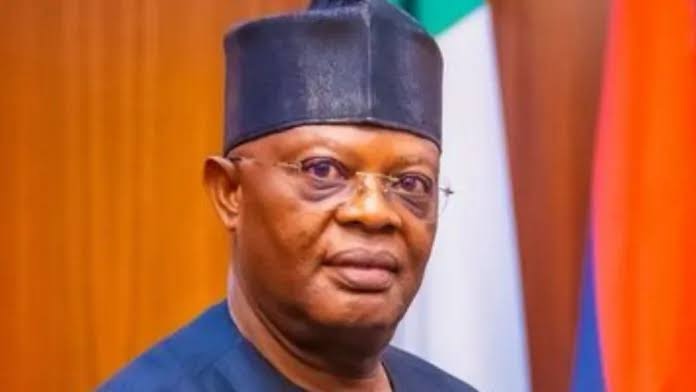At his inauguration on May 29, 2023, President Bola Tinubu announced that “fuel subsidy gone”, triggering a chain reaction that has since wreaked havoc on households and businesses.
In order to cushion the effect of the subsidy removal, the Tinubu administration has also tried to implement several palliative measures. As recently as June 27, 2024, President Tinubu approved the purchasing and selling of foodstuffs worth N155 billion to be distributed across the nation. He gave the approval during a National Economic Council (NEC) meeting in Abuja where he urged state governors to work together to meet the needs of citizens.
“President Bola Tinubu has approved the immediate rollout of the National Construction and Household Support Programme to cover all geo-political zones in the country,” presidential spokesman, Ajuri Ngelale, said in statement.
“Other items under the National Construction and Household Support Programme include deployment of N155 billion for the purchase and sale of assorted foodstuffs to be distributed across the nation,” he said.
It was not the first time that President Tinubu had approved palliatives to help cushion the hardship that subsidy removal has brought upon Nigerians.
In a national broadcast on July 31, 2023, President Tinubu announced the government’s first sets of palliatives, which included N100bn to acquire 3,000 units of 20-seater CNG-fuelled buses, N200bn to boost agriculture production, N75bn for manufacturers, and N125bn for micro, small and medium-sized enterprises, and the informal sector.
The president had said the move would tone down the agony of Nigerians from the pains of fuel subsidy removal.
Similarly, in August last year, the Federal Government announced N5bn as palliative measures for each state of the federation and 180 trucks of rice.
The Borno State Governor, Babagana Zulum, who made the announcement, said the N5bn would enable the state governments to procure 100,000 bags of rice, 40,000 bags of maize, and fertilisers to cushion the food shortage in the country.
Also in July last year, Tinubu announced plans to transfer $10 million-$12 million to poor households in a bid to ease the impact of the subsidy removal.
The government also announced N35,000 monthly provisional wage award for all treasury-paid Federal Government workers for six months, which began in September last year. With over 1.5 million workers on the Federal Government payroll, it implied that the government’s N35,000 commitment to workers would cost N315bn for the six months.
Also, last month the Federal Government said 19 million households have benefitted from palliatives worth N4.3trn to cushion the effects of the fuel subsidy removal under the current administration. Parts of the palliatives have been payments of cash to no fewer than 18.7 million vulnerable households, and acquisition of CNG-powered buses amid the rising spate of inflation. It also included agricultural interventions and financial aids to manufacturers as well as small and medium scale enterprises in the country.
Proceeds from fuel subsidy removal
Before the removal of the subsidy, the Nigerian National Petroleum Company Limited said it spent N1.828trn on subsidy payments between January 2023 and May 2023 — 55 per cent higher than the amount paid in the corresponding period of 2022.
About N1.15trn was spent on subsidy in the first four months of 2023. Breakdown of the figures showed that N274.769bn was expended in January 2023, N477.742bn in February, N415.381bn in March, and N353.130bn in April.
But the narrative as regards fuel subsidy changed when President Tinubu on his inauguration day announced the removal of fuel subsidy.
On August 1, 2023, President Bola Tinubu, in a nationwide broadcast, revealed that the Federal Government of Nigeria has saved N1trn in the two months (June and July) since the removal of the petrol subsidy.
Tinubu said these monies that would have been otherwise squandered by those he called “smugglers and fraudsters” will now be channelled into intervention programmes targeting families nationwide.
He stated, “In a little over two months, we have saved over a trillion Naira that would have been squandered on the unproductive fuel subsidy which only benefitted smugglers and fraudsters.”
Doing the math
If President Tinubu’s statement that the country saved N1trn in the two months of June and July 2023 is anything to go by, then it means that for the past one year (June 2023 – June 2024), the federal government has realized, on the average, N6trn from the removal of fuel subsidy, at the rate of N500bn per month.
But looking at the amount of money the Federal Government has spent on palliatives in an attempt to cushion the effect of the fuel subsidy removal, it can be argued that the government may have spent more on palliatives than it has gained from the subsidy removal.
Meanwhile, As such, the impact of the palliatives has not been felt by Nigerians as hunger and hardship continue to bite harder.
It may be time for the Federal Government to, as a matter of urgency, review its policies since the removal of fuel subsidy and make a u-turn if necessary, and also look into how palliatives are being distributed so as to ensure that it gets to those that it is meant for and avoid hijacking by politicians and government officials.


